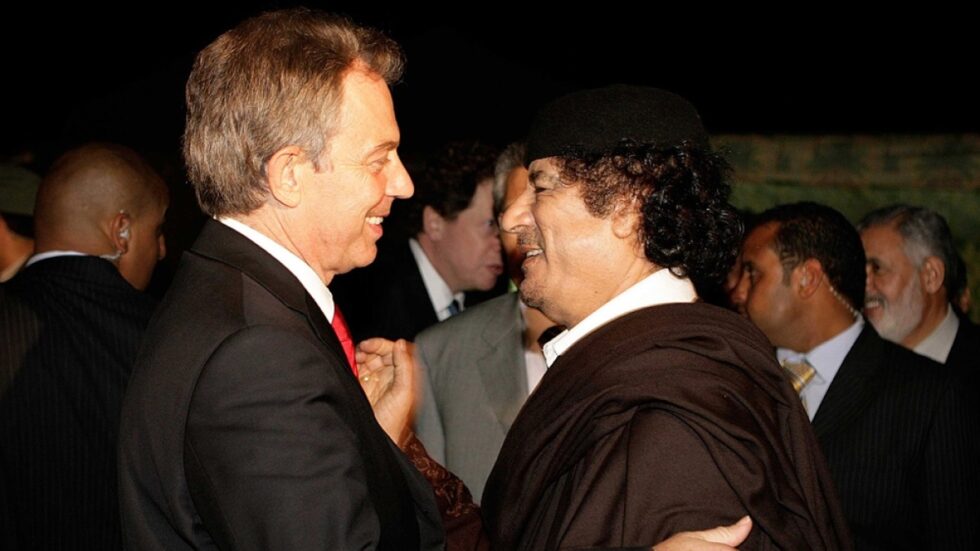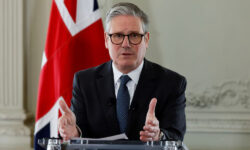
On a Sunday morning in February 2011, William Hague, the British foreign secretary, received an unexpected phone call at home from Saif al-Islam Gaddafi, the well-connected son of Libyan leader Muammar Gaddafi.
“He came on the line to say there was now an alarming situation in Libya, and on behalf of his government he was asking the United Kingdom and the West to help them to suppress the rebellion,” Hague recalled last week in front of a parliamentary inquiry examining the Britain’s relations with Libya and its part in the NATO-led intervention that contributed to Gaddafi’s downfall.
“He had clearly formed a view that this was a friendly country, and that a friendly country with which you have a personal relationship will intervene on your behalf when you are in trouble … I think he was under a misapprehension about that, but he was not under it for many minutes,” Hague continued.
Yet the exchange tells its own story of the close links that had briefly flourished between the British and Libyan governments, even despite decades of hostility marked by the alleged Libyan bombing of an American airliner over Lockerbie, Scotland, in 1988, the killing of a female police officer by a gunman shooting from the Libyan embassy in London in 1984, and British support for US air strikes against Libya in 1986.
The ‘Deal in the Desert’
Today, the inquiry will hear from Tony Blair, the former prime minister whose handshake with his host in a tent on the outskirts of Tripoli in 2004 – dubbed the “Deal in the Desert” – set the tone for Gaddafi’s transformation from an international pariah into a favoured ally.
The consequences of that deal, which followed months of Blair-brokered negotiations culminating in Gaddafi agreeing to abandon his nuclear and chemical weapons programmes, are alleged to have included both countries’ complicity in US rendition operations.
According to documents retrieved from the ransacked offices of the Libyan intelligence agency in 2011, British security services also cracked down on Libyan dissidents in the UK, with some placed under control orders amounting to house arrest.
British oil firms benefited from the deal in the form of lucrative contracts, while the Gaddafi family moved billions of dollars in assets to London and gained access to influential circles, with Saif acquiring a PhD from the London School of Economics and subsequently facing plagiarism accusations over his outsourcing of the research to a consultancy firm.
At its heart were relationships between Blair and Gaddafi, and other senior officials, that correspondence suggests were not just pragmatic but invested with personal warmth.





